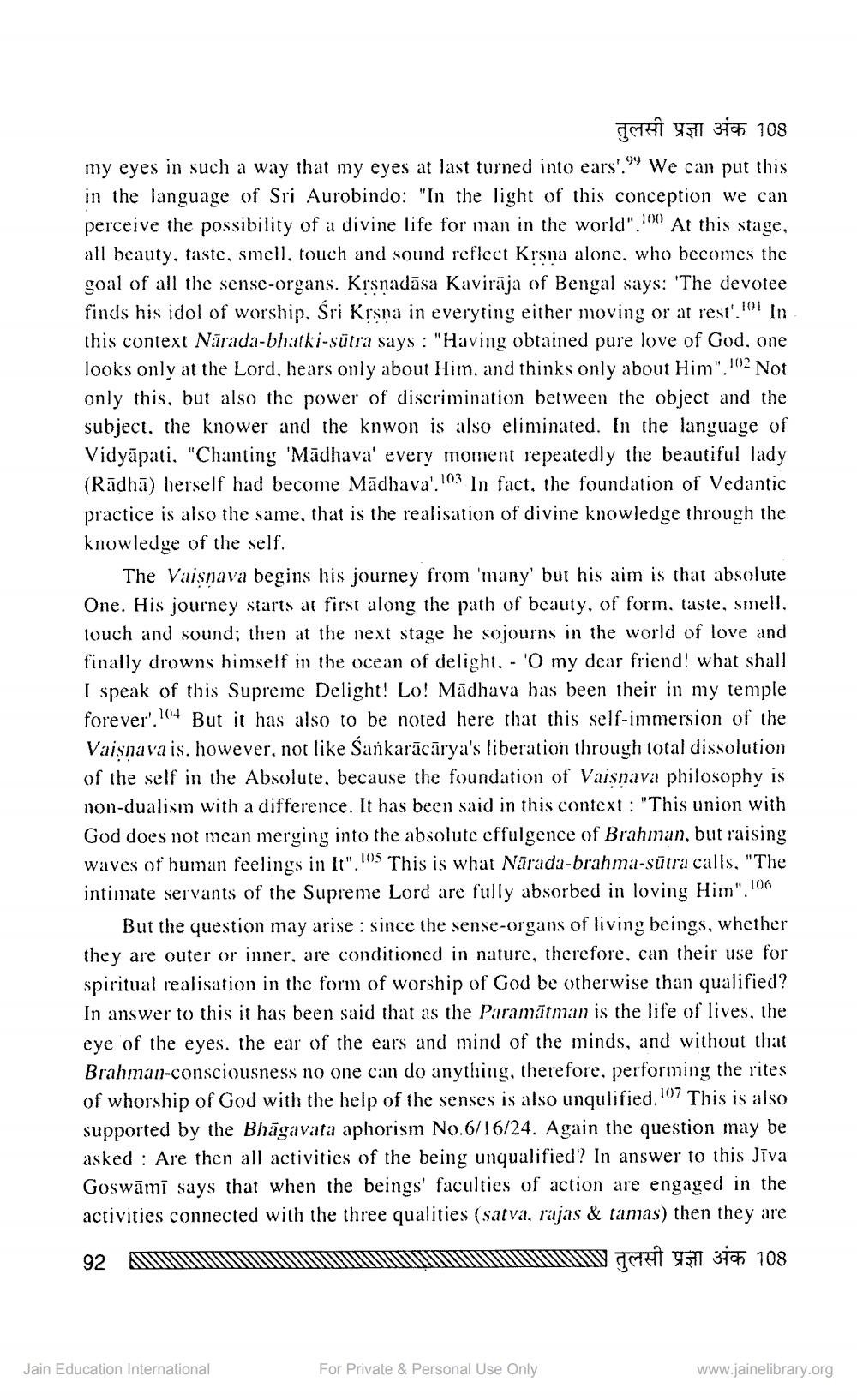________________
ISTÎ 4311 310 108 my eyes in such a way that my eyes at last turned into ears'. We can put this in the language of Sri Aurobindo: "In the light of this conception we can perceive the possibility of a divine life for man in the world".100 At this stage, all beauty, taste, smell, touch and sound reflect Krsna alone, who becomes the goal of all the sense-organs. Krsnadāsa Kavirāja of Bengal says: 'The devotee finds his idol of worship. Sri Krsna in everyting either moving or at rest'. 101 In this context Nārada-bhatki-sütra says: "Having obtained pure love of God, one looks only at the Lord, hears only about Him, and thinks only about Him". 102 Not only this, but also the power of discrimination between the object and the subject, the knower and the knwon is also eliminated. In the language of Vidyāpati. "Chanting 'Madhava' every moment repeatedly the beautiful lady (Rādhā) herself had become Mādhava'.103 In fact, the foundation of Vedantic practice is also the same, that is the realisation of divine knowledge through the knowledge of the self.
The Vaisnava begins his journey from 'many' but his aim is that absolute One. His journey starts at first along the path of beauty, of form, taste, smell, touch and sound; then at the next stage he sojourns in the world of love and finally drowns himself in the ocean of delight. - 'O my dear friend! what shall I speak of this Supreme Delight! Lo! Madhava has been their in my temple forever'.104 But it has also to be noted here that this self-immersion of the Vaisnava is, however, not like Sankarācārya's liberation through total dissolution of the self in the Absolute, because the foundation of Vaisnava philosophy is non-dualism with a difference. It has been said in this context: "This union with God does not mean merging into the absolute effulgence of Brahman, but raising waves of human feelings in It".105 This is what Närada-brahma-sūtra calls, "The intimate servants of the Supreme Lord are fully absorbed in loving Him". 106
But the question may arise : since the sense-organs of living beings, whether they are outer or inner, are conditioned in nature, therefore, can their use for spiritual realisation in the form of worship of God be otherwise than qualified? In answer to this it has been said that as the Paramātman is the life of lives, the eye of the eyes, the ear of the ears and mind of the minds, and without that Brahman-consciousness no one can do anything, therefore, performing the rites of whorship of God with the help of the senses is also ungulified.107 This is also supported by the Bhāgavata aphorism No.6/16/24. Again the question may be asked : Are then all activities of the being unqualified? In answer to this Jiva Goswami says that when the beings' faculties of action are engaged in the activities connected with the three qualities (satva, rajas & tamas) then they are 92 A ||||||||||||||||||TTTTTTTTTTTTT WWM WW MET 511 310 108
Jain Education International
For Private & Personal Use Only
www.jainelibrary.org




